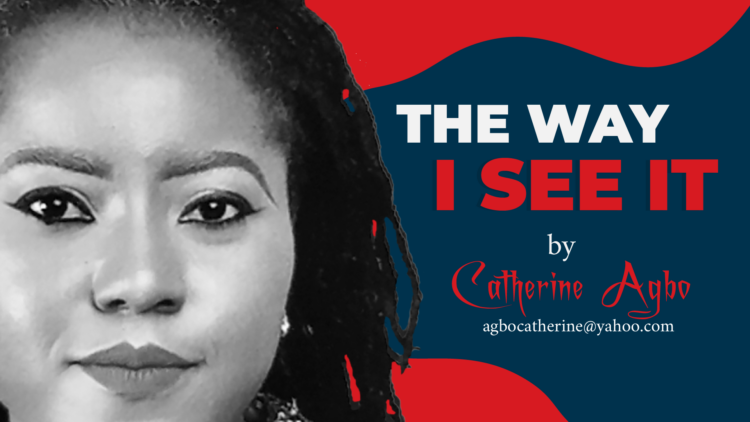On Sallah day, I went by the neighbourhood kiosk to get an item and I met the ‘aboki’ with some of his friends who had come by, in a celebratory mood.
They sat in an arc, each holding a cup of drink and in front of them was an almost full bucket of a local drink, zobo.
After making my purchase, I asked the ‘aboki’ if he wasn’t going to give me a cup of the drink for Sallah and he said to me in broken English “aunty you no fit drink this one.”
I told him to make me an offer and let me be the one to pass but he was adamant that the drink wasn’t for me. While our chit chat went on, his guests giggled mischievously, one said something in Hausa which I didn’t understand and they laughed heartily and shook hands.
I left but I was curious so the next day, I asked the ‘aboki’ why he refused to give me Sallah drink and it was then he told me that the drink had been heavily laced with drugs and I’d have been knocked out if I took as much as a sip.
Of course, I gave him a quick talk on the dangers of drug abuse but the encounter left me wondering how deep the drug culture had eaten into the fabric of the country’s youth.
Nigeria is facing a drug problem of enormous proportions that is threatening to waste many young people.
Trade in and consumption of illicit drugs and banned substances is fast becoming the new normal.
Just this month, the National Drug Law Enforcement Agency (NDLEA) intercepted several jumbo bags of cannabis, weighing 1,029.5k in Lafia, Nasarawa State. This was barely four days after operatives at Agwan Doka, Lafia, seized 38 big bags of the same substance weighing 367kg.
In Kaduna and Adamawa states, over half a million pills of pharmaceutical opioids were seized and suspects arrested during raids across the two states.
In Kaduna alone, 294,400 pills of Tramadol and Diazepam were seized from Shaban Nasir, Aminu Usman and Shamsudeen Hussaini, on Friday 15th July.
In Adamawa, over 227,000 different grades of Tramadol tablets were seized during a raid of a patent medicine store at Sabon Layi, close to Mubi main market, on Sunday 3rd July. Recovered from the store, where a suspect, Nasiru Abubakar, 27, was arrested, include Tramadol 250mg (aka Boko Haram); Royal Tramadol 225mg (aka Vectra); Tramaking Tramadol 225mg (aka Jan Dara); Tramadol 200mg (aka Dogari); and Tramadol 100mg(aka Green), among others. Another suspect, Idris Adamu, 25, was also arrested in a shoe shop in the same Sabon Layi where over 5,000 tablets of Tramadol 225mg were recovered from him.
Statistics by the NDLEA also show that no less than 40 per cent of Nigerian youth between 18 and 35 years are deeply involved in the abuse of drugs.
In 2019, the 2018 National Drug Use Survey, a joint research by the National Bureau of Statistics (NBS) and the Centre for Research and Information on Substance Abuse (CRISA) with technical support from the UNODC, launched a document which gave a damning account of rising drug use in Nigeria.
As of the time of the research, 14.3 million Nigerians aged between 15 and 64 were said to be engaged in drug use, with about three million being drug dependent and suffering from substance-induced disorders.
According to the United Nations office of Drug and Crime (UNODC), Nigeria, this signifies that the country will have to grapple with approximately 20 million drug users by 2030, further deepening the public health and public security challenge it faces.
The UNODC report shows that the South West tops the chart on prevalence of drug use in Nigeria on a geopolitical zonal basis, with about 4.382 million users amounting to 22.4 per cent of Nigeria’s total figure of 14.3 million users. The North-west zone closely follows with 3 million drug users, while the South-south region ranks third with 2.124 million users.
The North-east recorded 2.09 million users to rank 4th, while the South East zone recorded about 1.55 million drug users and the North Central zone and the federal capital territory recorded 1.5 million users to take 5th and 6th positions.
This is worrisome and a clear indication that the problem has reached epidemic levels, hence the need for urgent action by all sstakeholders
The country’s active population is being wasted by drug consumption and if care is not taken, we will be a nation of delirious people in the near future, as the youth constitute over 50 per cent of the country’s population.
Illicit drug use has been linked to some conditions including delirium, dementia, amnestic disorder, psychotic disorder, anxiety disorder, sexual dysfunction, among others.
There are many social factors that have resulted in abuse of drugs. These include but not limited to decline of family value systems, children growing up on their own as a result of parents not playing their roles, misguided youth, wrong role models, pop culture, peer pressure, social media influence, poverty and unemployment.
The increased rate of insecurity and crime in the country has also been traced to drug abuse, which is at almost 15 per cent and three times higher than global average, according to UNODC.
The situation, therefore, calls for concerted efforts by all stakeholders to pull back the country’s yough from the claws of drug and substance abuse.
It is a battle for which responsibilities must be shared among relevant stakeholders including parents, teachers, and the government.
To solve this problem, there is an urgent need to strengthen advocacy across all levels of governance to be able to reach the needed populations.
Unless this is done, Nigeria is sitting on a keg of gunpowder and God forbid that it explodes.









